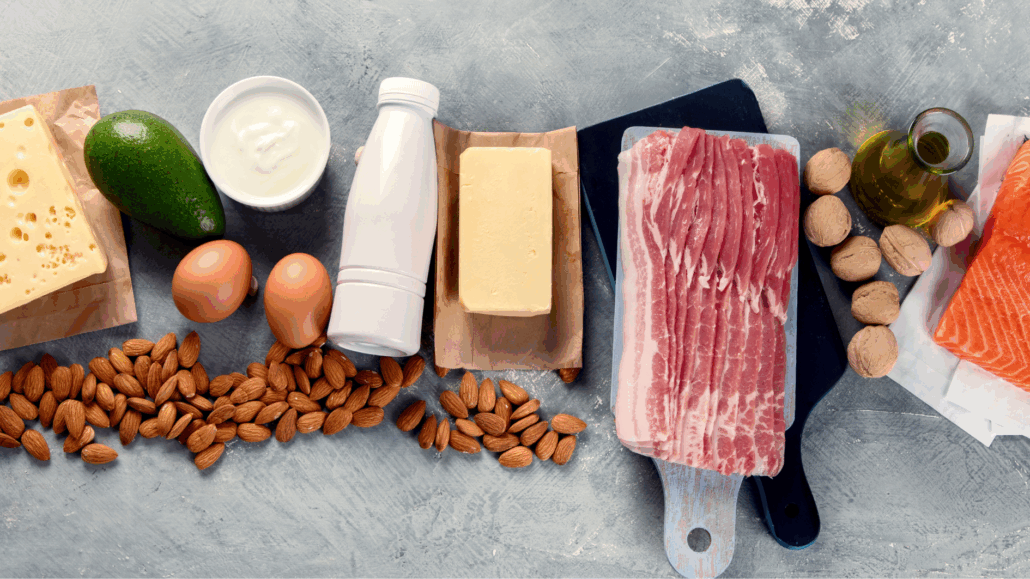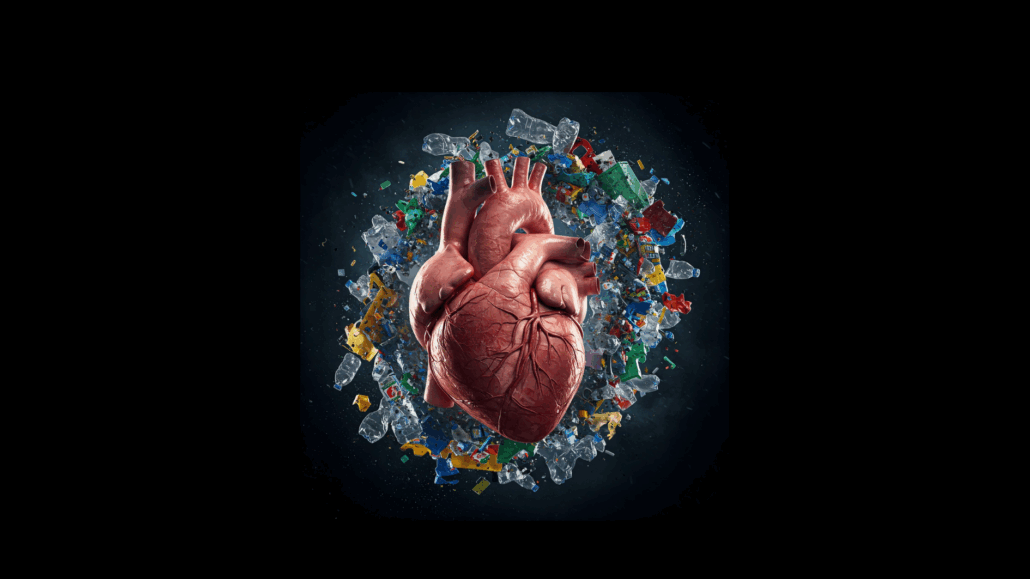We include products in articles we think are useful for our readers. If you buy products or services through links on our website, we may earn a small commission.
Top 7 Foods That Are Bad for Your Brain and Memory
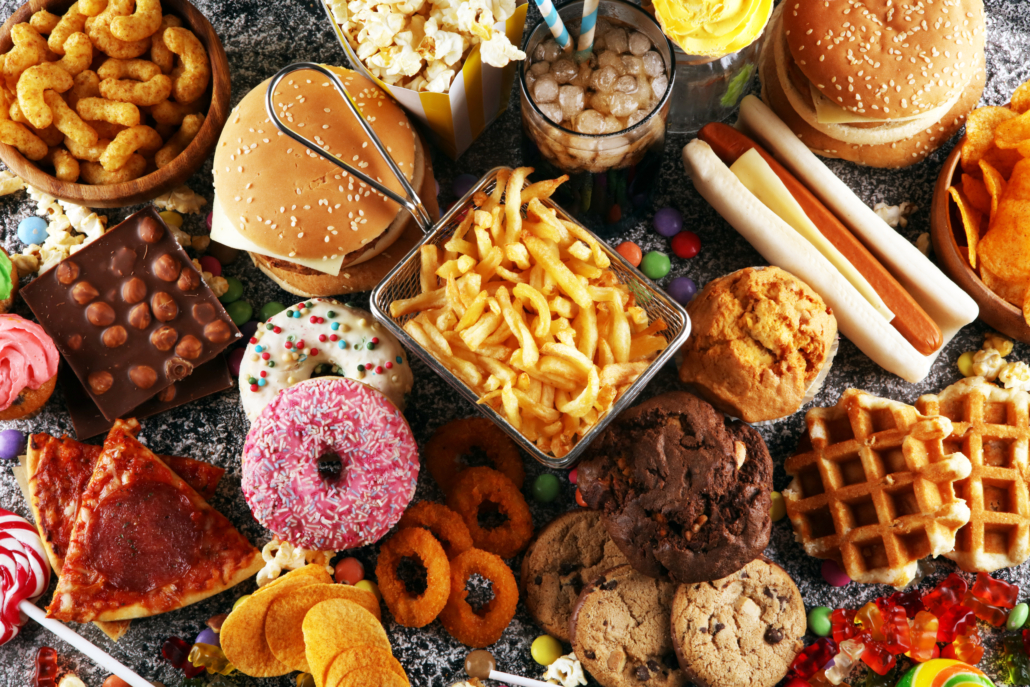
Few decisions are as crucial to our overall health and well-being as what we put on our plates. The link between poor diet and physical illness is undeniable, but what about the influence of foods that are bad for your brain and memory? It turns out that our brains are just as susceptible to the quality of our diet as our waistlines.
In fact, the way that foods influence your brain can have wide-ranging effects on various other bodily functions, including feelings of fullness and food cravings , coordination, and lung and heart health.
It’s also important to highlight that dementia rates are forecast to triple by 2050, while Alzheimer’s mortality rates already increased by 38.0% between 1990 and 2019. Nearly all of these increases have and will take place in developed countries where people consume highly processed standard Western diets loaded with the foods we explore below.
In this article, we’ll explore the realm of nutrition and neuroscience, shedding light on the foods that can compromise our brain health and memory.
Table of Contents
1. Sugary Drinks
It’s a stretch to call sugar drinks a “food” that is bad for your brain and memory. It’s more accurate to simply call them poison.
Sugary drinks include
- Soda,
- fruit juice
- sports drinks
- energy drinks
- Sweetened teas
- Sweetened coffee drinks
Sugary drinks lead to rapid spikes in blood sugar. Research shows that increases in blood sugar are directly linked to increased risk of brain disorders, including dementia and Alzheimer’s disease.
Studies on animals show that f sugary drinks can deteriorate memory and decision-making abilities.
Other studies show that consuming sugary drinks increases the odds of developing type 2 diabetes, which significantly increases the risk of Alzheimer’s disease.
Most sugary drinks are sweetened with either high-fructose corn syrup (HFCS), cane sugar, and/or beet sugar. All of these are composed of around 50% of a type of sugar called fructose.
In a 2020 study, researchers described Alzheimer’s as a modern disease driven by changes in diet, in which high intake of fructose disrupts cerebral metabolism, causes inflammation in the brain, and interferes with neuronal function. All of which increase the risk of Alzheimer’s disease.
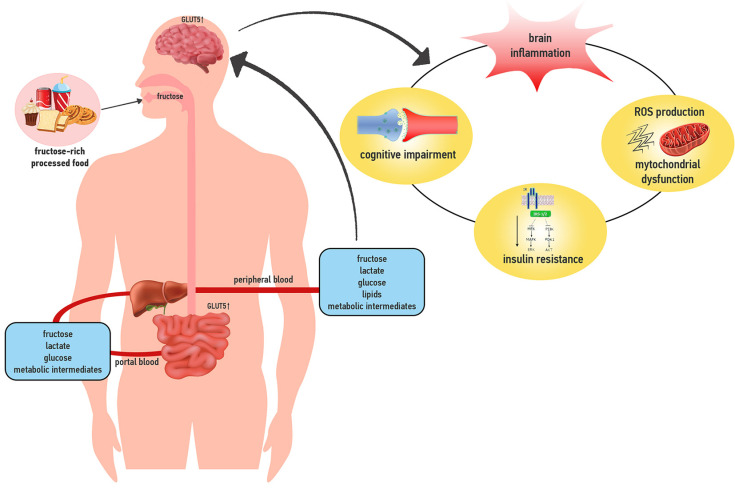
Source: Spagnuolo MS, Iossa S, Cigliano L. Sweet but Bitter: Focus on Fructose Impact on Brain Function in Rodent Models. Nutrients. 2021
Studies on rodents have found that high fructose intake increases neuroinflammation and decreases numerous factors associated with healthy brain function.
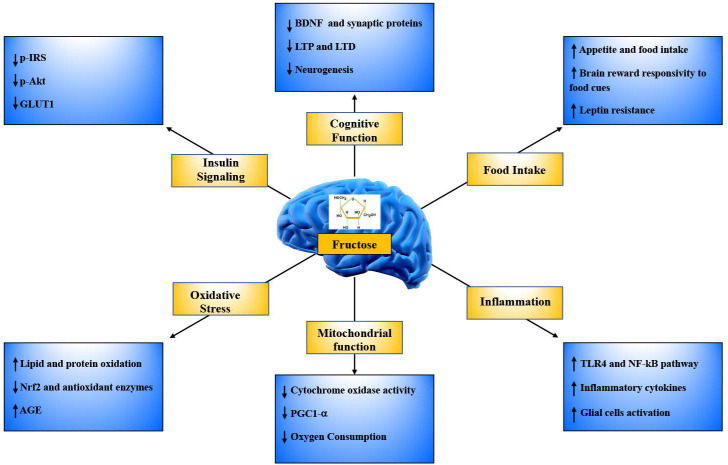
Source: Spagnuolo MS, Iossa S, Cigliano L. Sweet but Bitter: Focus on Fructose Impact on Brain Function in Rodent Models. Nutrients. 2020
2. Grains
Most people know that grains are high in carbohydrates, which causes them to spike blood sugar.
We also know that even a single meal with a high glycemic load has been found to impair memory in both children and adults.
But when considering the cognitive effects of grains, most people are unaware of the presence of naturally occurring plant toxins that negatively impact the brain and memory.
Lectins, a sticky protein found in abundance in most grains, have been shown to degrade the intestinal mucosal lining, leading to intestinal permeability.
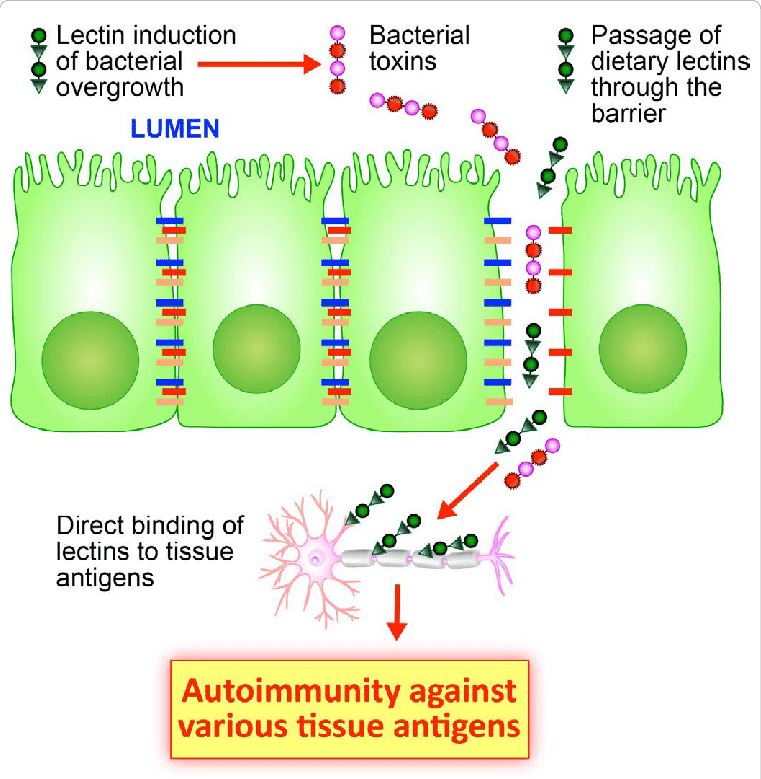
Source: Lambert, Jama & Vojdani, Aristo. (2017). Clinical & Cellular Immunology Correlation of Tissue Antibodies and Food Immune Reactivity in Randomly Selected Patient Specimens. Journal of Clinical & Cellular Immunology.
Studies have shown that increased intestinal permeability is associated with Alzheimer’s disease.
Dr. David Perlmutter, author of the #1 New York Times bestseller, Grain Brain, has conducted decades of research linking excess carb and gluten intake from grains to chronic inflammation in the brain, resulting in anxiety, depression, and Alzheimer’s disease.
Indeed, numerous studies link grains and inflammation via high carb intake, plant toxins, and industrial pesticide residue, and bacterial overgrowth.
Nearly all grains are designated as FODMAPS (fermentable oligosaccharides, disaccharides, monosaccharides, and polyols). FODMAPS cause intestinal overgrowth and are associated with inflammation of the gut mucosal lining.
Inflammation is considered a major risk factor for numerous degenerative diseases affecting the brain, including dementia and Alzheimer’s disease.
3. Seed “Vegetable” Oils
Seed oils like soy, canola, safflower, corn, and grapeseed oil are all highly processed industrial products. They have never been a natural part of the human diet.
Their prevalence in the modern Western diet has been linked to numerous health issues, including cancer, heart disease, depression, and all-cause mortality.
A key factor in the negative health effects of seed oils is their high levels of Omega-6 Polyunsaturated Fatty Acids. PUFAs easily oxidize in the body, leading to oxidative stress and inflammation in nearly every organ, including the brain.
In a 2020 study on mice, consuming soybean oil caused weight gain and triggered a gene dysregulation linked to an increased risk of neurological disorders, including autism, Alzheimer’s disease, anxiety, and depression.
In 2017, researchers from Temple University linked canola oil to worsened memory and learning ability in patients with Alzheimer’s Disease.9
Similarly, a Dutch study found that common seed oils high in Omega-6 PUFAs have been linked to cognitive decline.
Dr. Robert Peers named the effect of seed oils on the brain and memory “Seed Oil Syndrome.” Dr. Peers identified that when PUFAs are oxidized they release a highly reactive compound called aldehydes. These compounds have toxic effects on the nerves that send information throughout the brain, impeding memory and contributing to the plaques that are associated with Alzheimer’s disease.
4. Trans Fats
Like seed oils, trans fats are industrial fats made from seeds, and they’re high in polyunsaturated fatty acids.
It’s true that meat and dairy contain small amounts of natural trans fats, but these are not a problem.
The trans fats that are bad for your brain and memory come in artificial shortening, margarine, and frosting and are a common ingredient in prepackaged snacks like cakes and cookies.
Consuming trans fats has been found to increase the risk of Alzheimer’s disease and cognitive decline while impeding memory and reducing brain volume.
5. Processed Foods

Processed foods are generally made from grains, added sugar, and vegetable oils. As you can see from above, all of these “foods” are bad for your brain and memory. So when they’re mixed together into a single product, it’s no wonder that processed foods make this list.
Common examples of processed foods include
- Fast food like burgers with buns, fried chicken, french fries etc.
- Chips and pretty much any packaged snack
- Microwave popcorn
- Store-bought sauces
- Sweets like candy and packaged cookies
- Instant and microwavable products like noodles and pizza
- Processed meats
These processed foods are low in nutrients and high in calories from seed oils and added sugar. This composition of nutrients has been shown to cause inflammation in the brain and contribute to neurodegenerative diseases.
Studies also show that these foods are the root cause of metabolic syndrome, which decreases brain tissue even in its early stages.
A large-scale observational study found that consuming a high amount of processed meat and fried food is associated with lower learning and memory scores.
A factor in the link between consuming processed foods and their negative impacts on the brain and memory is the decrease in brain-derived neurotrophic factor (BDNF). BDNF is important to long-term memory formation and learning.
Interestingly, one way to promote the production of BDNF is by practicing intermittent fasting.
6. Aspartame and Artificial Sweeteners
Aspartame is an artificial sweetener found in many “diet” drinks.
Aspartame is made from compounds that have been found to cross the blood-brain barrier with the potential to disrupt neurotransmitters and increase oxidative stress in the brain.
Some researchers link these factors to negative impacts on learning, memory, and emotional regulation.
A study on people consuming high amounts of aspartame for eight days found that they had higher rates of depression, were more irritable, and had lower performance on cognitive tests.
Another study looking at the effects of artificially sweetened soft drinks without specifying the type of sweetener found that these drinks increased the risk of stroke and dementia.
7. Alcoholic Beverages
Consuming alcohol regularly has been found to reduce brain volume and disrupt neurotransmitters.
It is widely known that alcohol disrupts activity in the hippocampus, a brain region that plays a central role in the formation of new autobiographical memories.7
Furthermore, chronic alcohol consumption triggers vitamin B1 deficiency, leading to brain disorders like encephalopathy, severe brain damage, memory loss, confusion, and lack of coordination.
Pregnant women and teenagers are even more susceptible to the effects of alcohol on the brain and memory.
Drinking while pregnant can cause numerous devastating physical and brain defects in the fetus.
The growing brains of teenagers are susceptible to alcohol-related brain disorders that negatively impact behavior and learning.
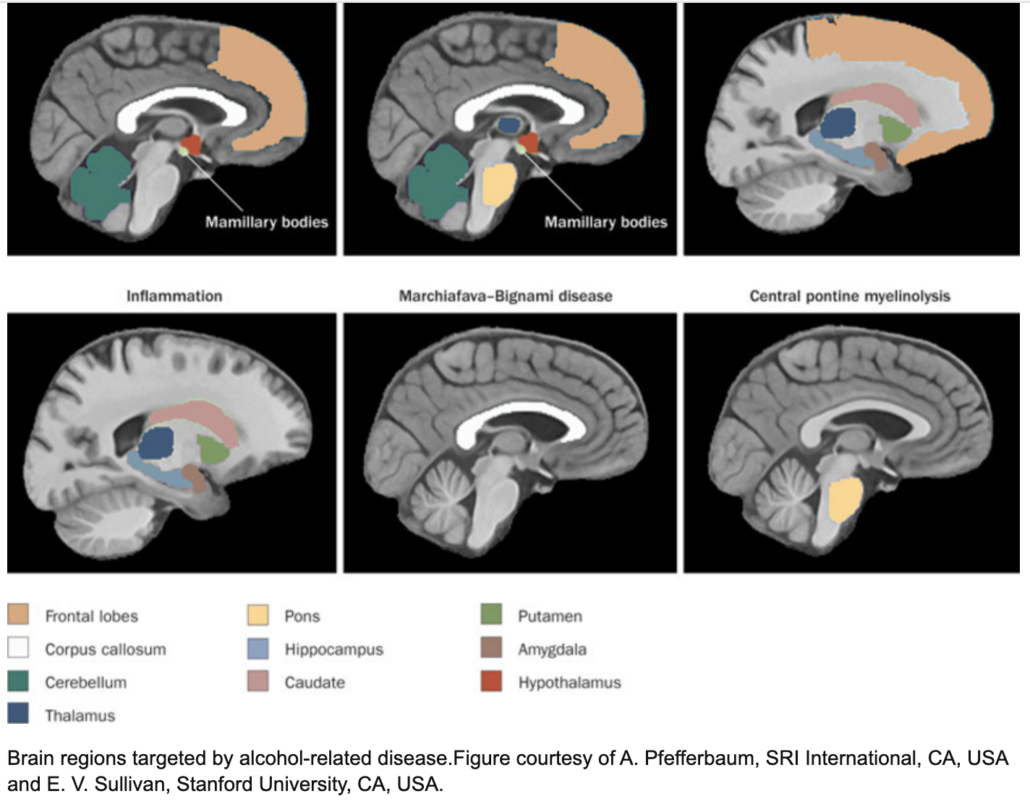
Foods That Are Bad for Your Brain and Memory: The Bottom Line
It is likely that the foods you eat have a greater impact on your brain and memory than any other factor in your life, even including your genes.
The modern Western diet is high in “foods” that have been found to have profoundly negative effects on your brain and memory. These foods include sugary drinks, grains, vegetable oils and fats, processed foods, artificial sweeteners, and alcohol.
If you’re serious about protecting the health of your brain and memory it is critical to eliminate these foods from your diet.
To combat and reverse the effects of these foods on your cognitive health, center your diet around ancestrally aligned whole foods like fresh meats, healthy animal fats, low-mercury seafood, and full-fat dairy, especially aged cheeses.
You can read more about true brain foods here and learn more about combating brain fog here.











